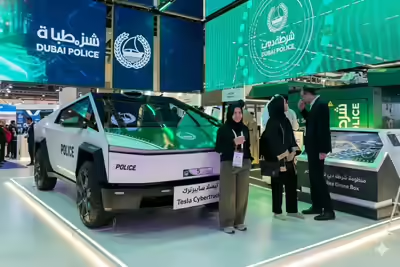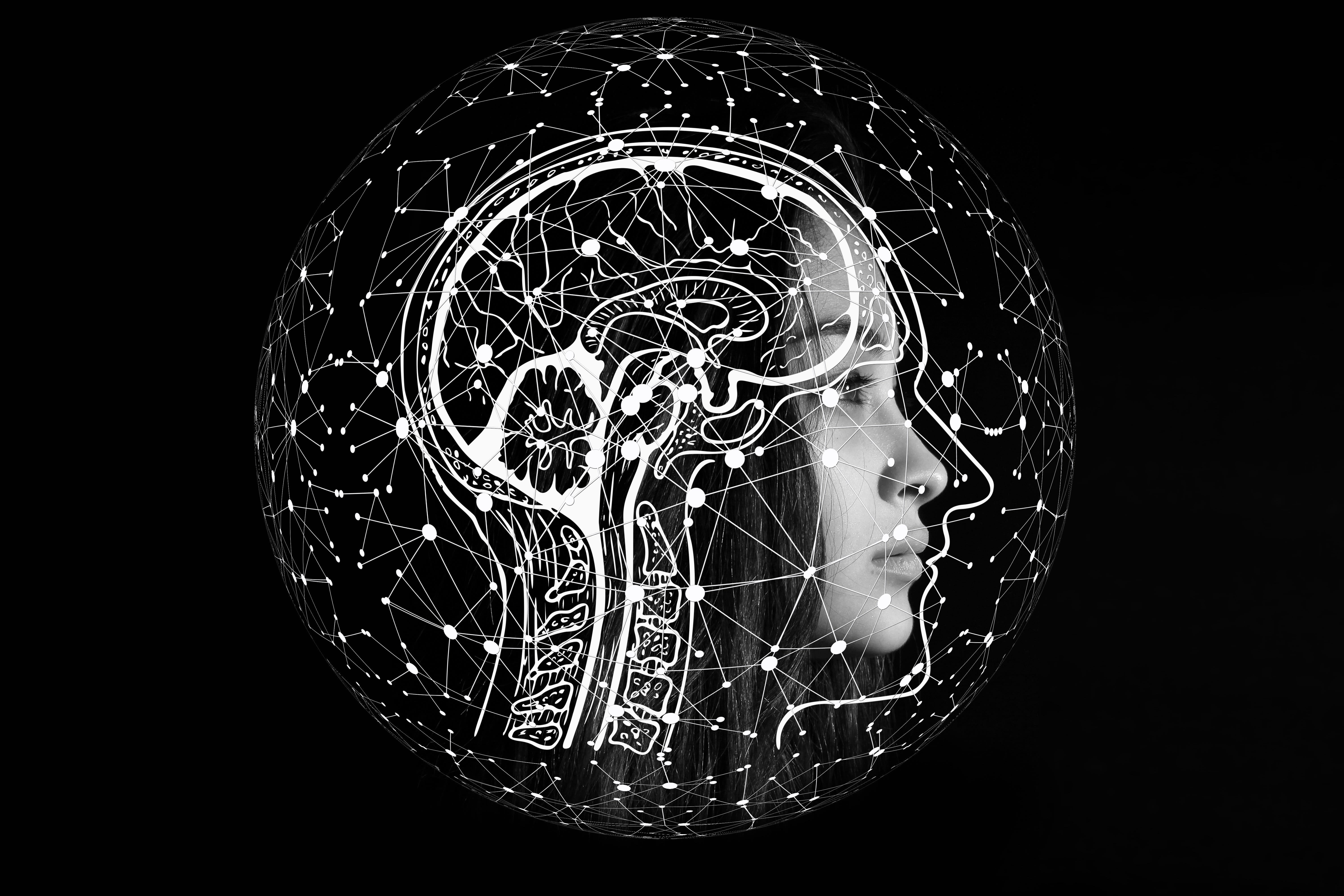This Week in Technology: Key Innovations and Developments You Should Know
The world of technology continues to evolve at an extraordinary pace, with innovations emerging across artificial intelligence, materials science, digital payments, and consumer electronics. This week has seen several notable announcements and breakthroughs that highlight the direction in which global technology is moving. Below is a detailed review of the most important stories.
1. AI Patrol Cars and Smart Police Stations in Dubai
At GITEX 2025, Dubai Police unveiled AI-driven patrol vehicles alongside next-generation Smart Police Stations.

These autonomous patrol cars are equipped with advanced sensors, surveillance systems, and real-time data connectivity. They are designed to enhance law enforcement by reducing response time, monitoring public spaces, and detecting threats more efficiently than traditional methods. The Smart Police Stations, meanwhile, provide citizens with 24/7 automated services without the need for human officers. This initiative is significant because it shows how AI is no longer just a supportive tool but is beginning to replace and augment core public safety functions. It also raises important questions about regulation, data privacy, and the role of human oversight in law enforcement.
2. AI in Public Health: Stroke Detection in Punjab
In India’s Punjab state, AI systems have screened more than 700 suspected stroke patients in hospitals, according to The Times of India.
The technology analyzes CT scans locally and connects with centralized neurologist teams for rapid assessment. Early detection is critical in stroke management, where treatment effectiveness often depends on intervention within a very short time window. By enabling local hospitals to access AI-powered diagnostics and specialist advice, this system has the potential to reduce treatment delays, especially in rural and semi-urban areas. It demonstrates how AI is moving from research settings into critical, high-impact areas of public health.
3. Dual-Trigger 4D Polymer Developed by IIT Bhilai
Researchers at IIT Bhilai have developed a novel “dual-trigger” 4D polymer capable of responding to both temperature and pH changes.
Unlike traditional polymers, this smart material can change its shape dynamically depending on environmental conditions. Such materials hold promise in fields such as targeted drug delivery (where medication is released only under specific biological conditions), biomedical implants, and soft robotics. The significance lies in the material’s ability to respond to multiple triggers, which increases its potential for real-world medical and industrial applications. This research is part of a broader global push towards “4D materials,” which represent the next step beyond 3D printing.
4. AI-Driven Payments: NPCI, Razorpay, and OpenAI Collaboration
India’s National Payments Corporation (NPCI), payment gateway Razorpay, and OpenAI have announced a collaboration to launch “agentic payments.”
The concept integrates AI assistants, such as ChatGPT, with payment systems, allowing users to search for products, make decisions, and complete transactions entirely within a conversational interface. This eliminates the need to switch between multiple apps or platforms. If successful, this model could transform digital commerce by making it faster, more seamless, and more intuitive. However, it also raises new challenges in terms of cybersecurity, fraud prevention, and regulatory oversight, as financial transactions are entrusted to AI intermediaries.
5. Anthropic Expands into India
AI company Anthropic, known for its Claude chatbot, is set to open its first Indian office in Bengaluru by 2026, according to Reuters.
India represents one of the fastest-growing markets for AI adoption, both in enterprise and consumer applications. Anthropic’s decision reflects the country’s strategic importance as a technology hub, offering both a large developer ecosystem and a rapidly expanding user base. This move also signals the intensifying competition among global AI firms to establish a strong presence in India, alongside players such as Google, Microsoft, and OpenAI.
6. Chevron Expands Digital and AI Capabilities in Bengaluru
Energy giant Chevron has announced the expansion of its India hub in Bengaluru to focus on digital innovation and AI, according to Reuters.
The new facility will use high-performance computing and AI-driven modeling to optimize energy operations worldwide. By investing in digital transformation at scale, Chevron is positioning itself as not just an energy producer but also a technology-driven organization. This move highlights a broader industry trend where traditional sectors such as oil and gas are rapidly adopting AI to improve efficiency, cut costs, and manage sustainability challenges.
7. Google to Launch “Search Live” in India
Google has announced that India will be the first country outside the U.S. to gain access to its new conversational “Search Live” feature.

Search Live allows users to interact with Google Search through voice and video, turning the search experience into a real-time dialogue rather than a static query-response model. This rollout underscores India’s role as a leading market for digital innovation and user adoption. It also suggests that conversational interfaces will soon become a primary way people interact with online information, moving beyond the traditional text-based search model.
8. IFA Berlin 2025: The Future of Consumer Electronics
At IFA Berlin 2025, one of the world’s premier consumer electronics shows, several groundbreaking gadgets were unveiled.
Highlights include swivel-display laptops designed for multitasking, ultra-thin professional tablets, smart home robotics, and next-generation HDR displays with Dolby integration. These devices represent the growing convergence of portability, performance, and immersive media experiences. The event also reinforced the global trend of consumer electronics becoming increasingly AI-enabled, more adaptive, and deeply integrated into daily life.
Major Trends to Watch
| Trend | Why It Matters | Example |
|---|---|---|
| AI Everywhere | From policing to payments, AI is becoming deeply embedded in real-world systems | AI patrol cars & Agentic Payments |
| Smart Materials & 4D Tech | Responsive materials allow devices to adapt in real time | Dual-trigger polymer |
| Conversational Interfaces | The boundary between apps and conversation is blurring | Google Search Live, ChatGPT + Payments |
| Localized Innovation & Tech Hubs | Companies are increasingly investing in regional tech ecosystems | Anthropic in India, Chevron’s Bengaluru facility |
| Intersection of Health & Technology | Applying AI and materials science to medical challenges | Stroke detection, shape-changing polymers |
Final Thoughts
This week’s news isn't just a list of gadgets — it reflects how technology is becoming more adaptive, intelligent, and integrated into everyday life. The shift is from tools to living systems: from standalone apps to conversational assistants, from rigid materials to responsive ones.
Bookmark these stories, because the next time you reach for your phone, ride in a car, or talk to an AI assistant — a version of these innovations might already be at work behind the scenes.
Conclusion
This week’s developments illustrate how technology is moving toward greater intelligence, adaptability, and integration. From AI patrol cars to 4D polymers and conversational search, the innovations are not isolated — they reflect a larger shift toward systems that can respond dynamically to human needs and environmental conditions.
As these technologies mature, their adoption will depend on regulatory frameworks, ethical safeguards, and user trust. What is clear is that the pace of innovation continues to accelerate, and the line between experimental technology and everyday reality is becoming increasingly blurred.